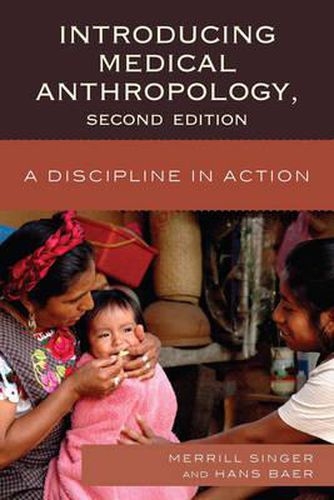Readings Newsletter
Become a Readings Member to make your shopping experience even easier.
Sign in or sign up for free!
You’re not far away from qualifying for FREE standard shipping within Australia
You’ve qualified for FREE standard shipping within Australia
The cart is loading…






This revised textbook provides students with a first exposure to the growing field of medical anthropology. The narrative is guided by unifying themes. First, medical anthropology is actively engaged in helping to address pressing health problems around the globe through research, intervention, and policy-related initiatives. Second, illness and disease cannot be fully understood or effectively addressed by treating them solely as biological in nature; rather, health problems involve complex biosocial processes and resolving them requires attention to range of factors including systems of belief, structures of social relationship, and environmental conditions. Third, through an examination of health inequalities on the one hand and environmental degradation and environment-related illness on the other, the book underlines the need for going beyond cultural or even ecological models of health toward a comprehensive medical anthropology. The authors show that a medical anthropology that integrates biological, cultural, and social factors to truly understand the origin of ill health will contribute to more effective and equitable health care systems.
$9.00 standard shipping within Australia
FREE standard shipping within Australia for orders over $100.00
Express & International shipping calculated at checkout
This revised textbook provides students with a first exposure to the growing field of medical anthropology. The narrative is guided by unifying themes. First, medical anthropology is actively engaged in helping to address pressing health problems around the globe through research, intervention, and policy-related initiatives. Second, illness and disease cannot be fully understood or effectively addressed by treating them solely as biological in nature; rather, health problems involve complex biosocial processes and resolving them requires attention to range of factors including systems of belief, structures of social relationship, and environmental conditions. Third, through an examination of health inequalities on the one hand and environmental degradation and environment-related illness on the other, the book underlines the need for going beyond cultural or even ecological models of health toward a comprehensive medical anthropology. The authors show that a medical anthropology that integrates biological, cultural, and social factors to truly understand the origin of ill health will contribute to more effective and equitable health care systems.